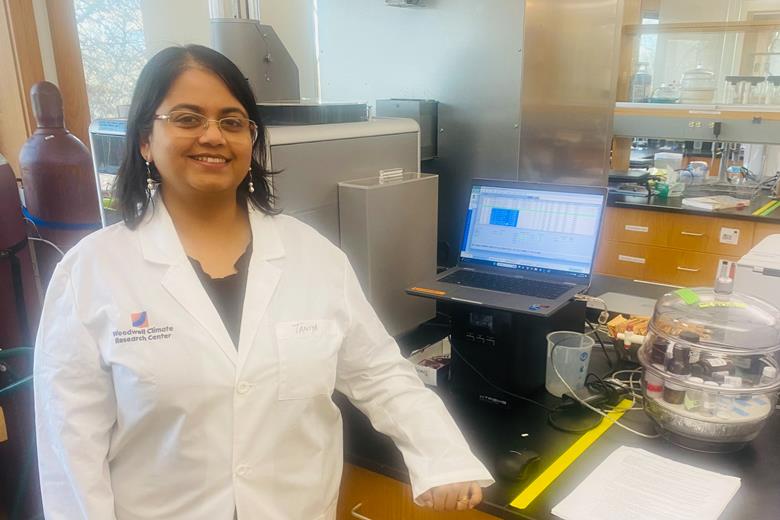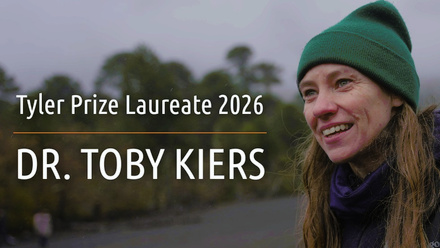Dr Taniya RoyChowdhury named as winner of the inaugural Christiana Figueres Prize 2023

Dr Taniya RoyChowdhury of Woodwell Climate Research Center in the US has been named as this year’s winner of the inaugural Christiana Figueres Prize for microbiology.
The prize is part of the Applied Microbiology International Horizon Awards, which celebrate the brightest minds in the field and promote the research, group, projects, products and individuals who continue to help shape the future of applied microbiology.
The Christiana Figueres Prize is awarded to a scientist who has used microbiology to help further our understanding of climate change or directly in solutions that can lower greenhouse gas emissions or turn renewable resources into low-carbon and low-cost electricity, fuels, chemicals or materials.
Prestigious event
Dr RoyChowdhury was named as winner of the prize at the prestigious EMI lecture 2023, held at BMA House in London on November 16.
A first-generation college student who grew up in urban India with a passion for nature and science, Dr Roy Chowdhury said her family made possible her dream of living a life in which the natural environment was integral to her education.
“With training in soil microbiology, I study soil systems at both the broad ecological scale and the complex microbial scale to assess change and resilience in response to climate change,” she said.
Soil microbiome
“Soil microbes regulate the rate at which organic carbon inputs from plants are metabolized and stabilized either biochemically or via reactions/interactions with the mineral surface.
“The soil microbiome is also the major driver of carbon loss via greenhouse gases. I seek to quantitatively understand the responses of the soil microbiome to climate change factors for the advancement of scientific knowledge and to apply that knowledge to actionable science through stakeholder engagement.
“My goal is to realize the powerful impact that soil microbiology can have towards achieving the sustainable development goals of climate action, with a specific focus on soil carbon stabilization, sequestration, and greenhouse gas mitigation.”
Multi-dimensional approach
Dr RoyChowdhury has published more than 25 papers on topics like the impacts of seasonal and tidal wetland drawdowns on methane production, the impacts of drought on prairie grasslands, and the connection between land-use/management change in agroecosystems and microbial processes.
“Using a multi-dimensional approach and comprehensive understanding of diverse ecosystems, I strive to provide valuable insights into the factors influencing climate vulnerability, soil health and sustainability,” she said.
Climate icon
The award is named after Christiana Figueres, who started her climate action leadership almost 30 years ago, founding the Centre for Sustainable Development in the Americas in 1995. She was a negotiator of the United Nations Convention on Climate Change and the Vice President of the Bureau of the Climate Convention representing Latin America and the Caribbean.
Ms Figueres has provided senior strategic guidance on climate change issues to organisations such as C-Quest Capital, Italian energy company Eni, S.p.A, World Bank, the Global Commission on the Geopolitics of Energy Transformation, Carbon Rating Agency Carbon, and Project Catalyst.
She has received countless awards and goverment recognitions including the are-millennium-award (2017), Lifetime Achievement Award bestowed by Ethical Corporation (2018), The Edinburgh Medal (2019), Apolitical’s 100 Most Influential People in Gender Policy (2021), the International Eco-Hero (2022) and appointed Dame Commander of the Order of the British Empire (2022).
To find out more about AMI’s Grants and Awards programme, visit https://appliedmicrobiology.org/membership-community/grants-awards.html.



